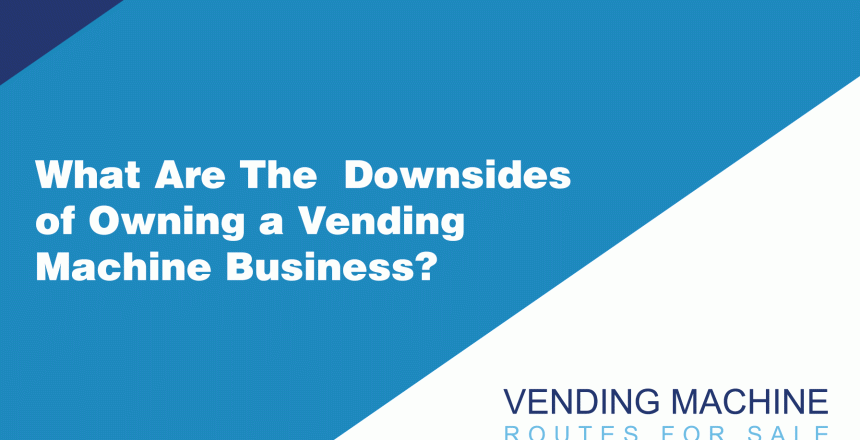While owning a vending machine business can be an attractive venture for many entrepreneurs, it’s important to acknowledge that like any business, it comes with its set of challenges. In this article, we will explore the various disadvantages of a vending machine business, offering a balanced view to those considering this venture. Understanding these pitfalls is essential, even when platforms like VendingMachineRoutesForSale.com provide resources to ease the process.
1. Initial Investment Costs
One of the primary downsides of starting a vending machine business is the initial capital required. Purchasing or leasing vending machines can be a significant investment. Additionally, stocking these machines with inventory incurs further costs. For those without ready access to capital, these initial expenses can be a barrier to entry.
2. Dependence on Location
The success of vending machines heavily relies on their location. High-traffic areas such as malls, schools, or office buildings typically yield the best returns. However, securing prime locations is not always easy and often comes with higher rental costs. Competition for these spots can be intense, and there’s always a risk that a previously profitable location might see a decrease in foot traffic over time.
3. Maintenance and Upkeep
Vending machines require regular maintenance and repairs. Mechanical failures, vandalism, or wear and tear can lead to unexpected expenses and loss of income during downtime. The owner needs to be proactive in maintaining the machines, which can be time-consuming and costly, especially for those who have multiple machines spread across various locations.
4. Managing Inventory
Keeping the vending machines stocked with the right products is crucial. This involves not only the physical task of restocking but also managing inventory levels, monitoring product expiry dates, and keeping up with changing consumer preferences. Poor inventory management can lead to stockouts, expired products, or unsold inventory, all of which can hurt profitability.
5. Handling Cash and Security Concerns
Although newer vending machines offer cashless payment options, many still operate with cash. Handling cash increases the risk of theft and requires additional time for collection and accounting. Furthermore, vending machines, in general, can be targets for vandalism or theft, leading to potential losses and repair costs.
6. Seasonal and Economic Fluctuations
The vending machine business can be susceptible to seasonal and economic fluctuations. For instance, machines located in educational institutions might see reduced sales during holiday seasons. Similarly, economic downturns can lead to decreased consumer spending, affecting sales.
7. Time Commitment
Despite being touted as a ‘passive’ income source, a vending machine business requires a considerable time commitment, especially in the beginning. Tasks like scouting locations, negotiating contracts, servicing machines, and restocking require time and effort. Balancing these demands with other personal or professional responsibilities can be challenging.
Conclusion
While a vending machine business can be profitable and rewarding, it’s important to go in with eyes wide open. Understanding the challenges – from the initial investment and location dependence to maintenance, inventory management, and security concerns – is crucial. Utilizing resources like VendingMachineRoutesForSale.com can provide valuable guidance and support, but success in this industry requires diligence, strategic planning, and a readiness to tackle these inherent disadvantages. With a realistic approach, entrepreneurs can better prepare to navigate the complexities of the vending machine business.
